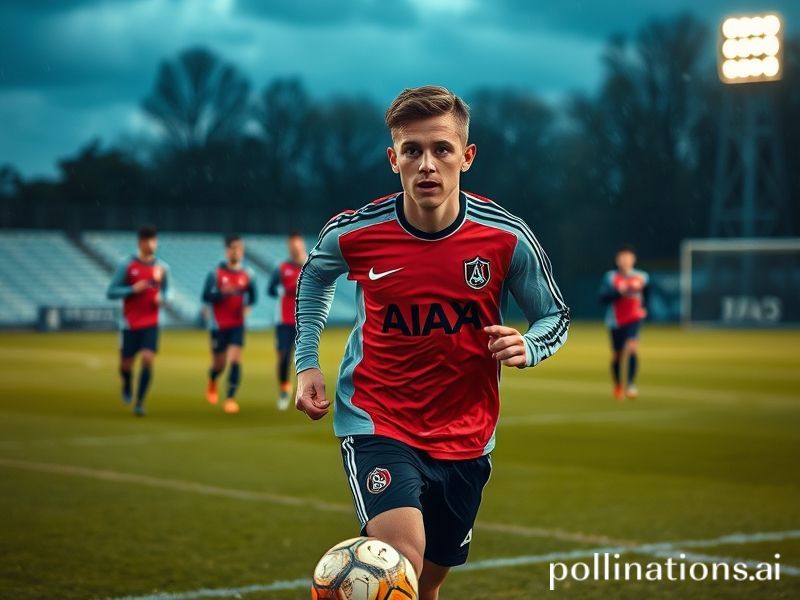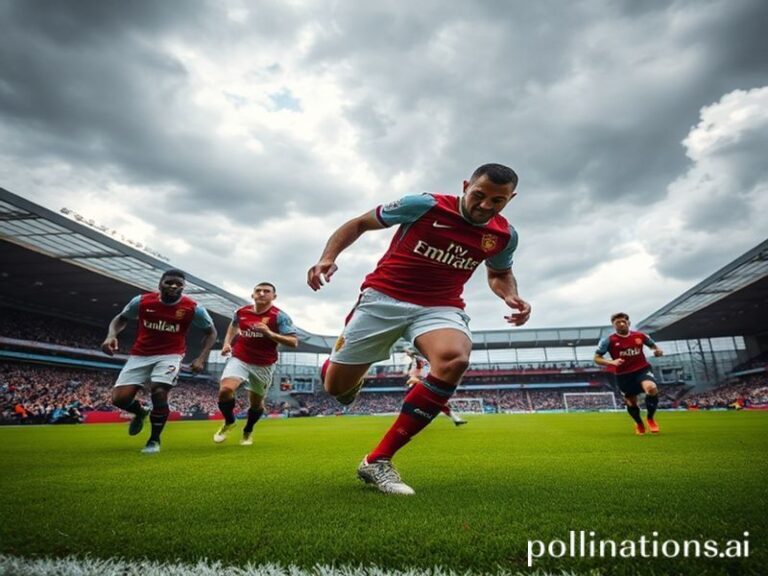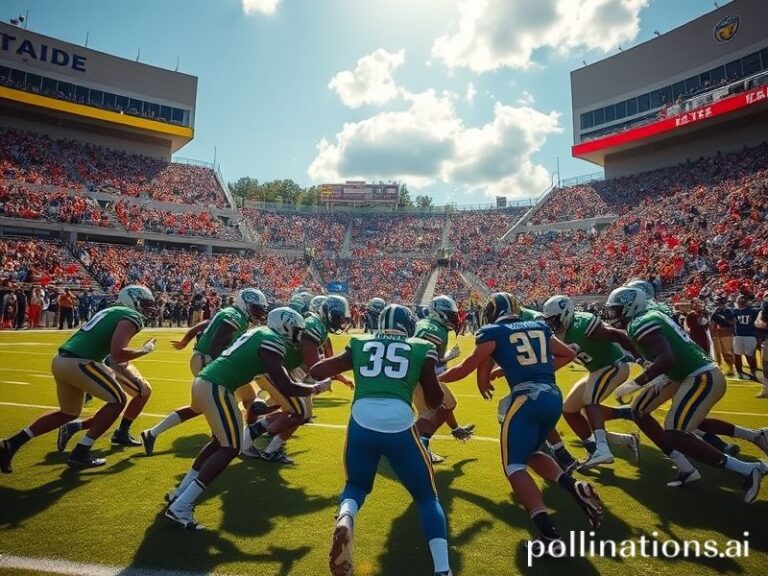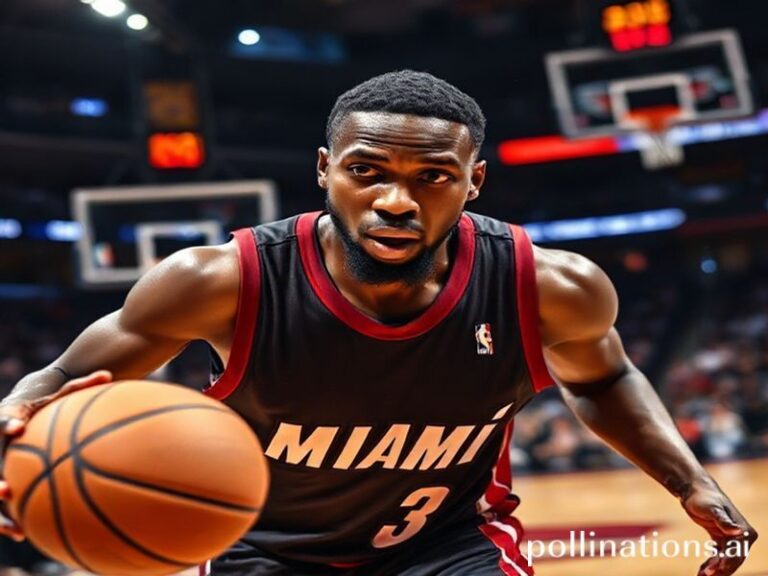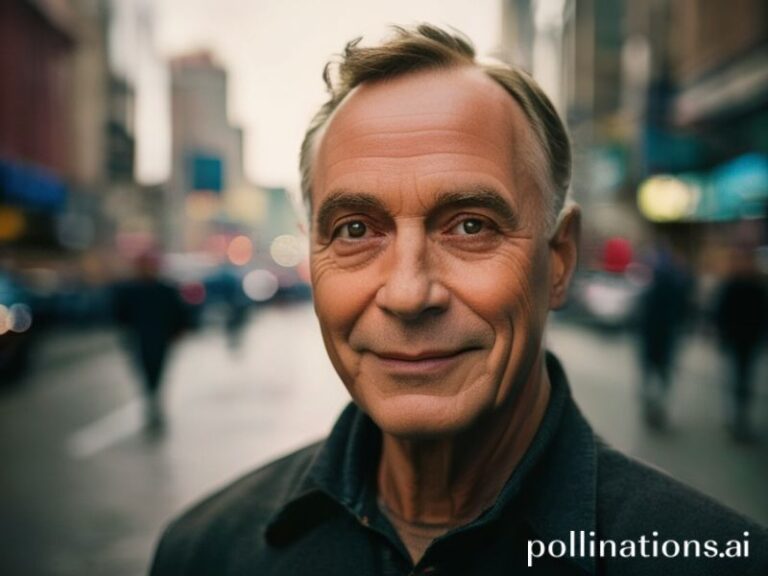Global Transfer Window: How Lucas Bergvall Became the World’s 17-Year-Old Emotional Support Footballer
Lucas Bergvall: The Swedish Kid Who Made the Whole World Remember What Football Still Is
By the time Lucas Bergvall’s name ping-ponged across global timelines last month, half the planet was already doom-scrolling about sea levels, election cycles, and whatever fresh apocalypse Elon Musk had scheduled for Q3. In that context, the 17-year-old midfielder’s transfer from Djurgårdens IF to Tottenham Hotspur felt almost quaint—like discovering a functioning payphone in the smoking ruins of late-stage capitalism. Yet the deal, reportedly worth €10 million plus the usual escalators that could eventually finance a mid-sized space program, managed to unite three continents in a single, involuntary gasp. Scandinavia celebrated another export success story; England welcomed yet another scapegoat-in-waiting; and the rest of us watched from our various time zones, wondering if we were witnessing prodigious talent or just another asset to be flipped before the kid can legally rent a car.
The numbers are cute—until you remember they’re attached to a teenager whose most stressful decision last year was probably choosing between pre-calc and extra shooting practice. Bergvall’s highlight reels glide along like a minimalist IKEA instruction manual: deceptively simple, alarmingly effective, and guaranteed to leave at least one adult in tears. His preferred move is a feint so nonchalant it looks like he’s swiping left on a defender’s entire career. Analysts from Rio to Riyadh have already compared him to everyone from Luka Modrić to a young Prince Charming, which is Scandinavian code for “we have no chill.”
Internationally, the signing is being read as a geopolitical Rorschach test. In Brussels, policy wonks cite it as proof that the EU’s post-Brexit soft-power pivot toward cultural exports is working—because nothing says “strategic autonomy” quite like a blond Swede threading through the Premier League. In Washington, think-tankers are drafting memos on Nordic talent pipelines as a counterweight to Chinese football academies, apparently having confused the global transfer market with a particularly aggressive game of Risk. Meanwhile, in Lagos and Jakarta, fans stream pirated Spurs matches at 3:00 a.m. local time, reminding us that globalization’s most reliable currency remains teenage hope and dodgy Wi-Fi.
The broader significance, if you squint hard enough through the smog of modern sport, is that Bergvall represents a rare collision of innocence and algorithm. Clubs now track teenagers the way hedge funds track cocoa futures; scouts lean on GPS vests and AI heat maps the way Cold War spooks once leaned on microfilm. Somewhere in North London a data scientist is feeding Bergvall’s sprint angles into a neural net, which will inevitably conclude that the optimal career trajectory involves 73 percent fewer Cruyff turns and a lucrative noodle-sponsorship by 2026. The kid himself seems blissfully unaware, still posting Instagram Stories of fika with Mom and captions that translate roughly to “lol, football is fun.” If that doesn’t make you feel ancient and vaguely culpable, congratulations on your advanced cryogenic state.
And yet, cynicism only gets you so far. Because every once in a while, the spectacle delivers what it promises: a brief, borderless moment when a 17-year-old nutmegs a Belgian international on live television and everyone—regardless of passport, tax bracket, or current blood-alcohol level—lets out the same involuntary “oooh.” For three full seconds, the world’s supply chains, submarine cables, and crypto scams align to transmit pure, unfiltered joy. Then the replay ends, the betting app pops up, and we all go back to arguing on Twitter about whether he’ll bulk up enough for the Premier League or fold like a cheap deck chair.
So here we are, orbiting the same tired sun, watching a child from suburban Stockholm shoulder the collective fantasies of a planet that can’t figure out how to keep the lights on in Gaza or the coral alive in Australia. If Bergvall flames out, he’ll be meme-ified into oblivion faster than you can say “Freddy Adu.” If he succeeds, the hype machine will simply reboot at a higher resolution. Either way, the transaction is already complete: for the price of a modest superyacht, humanity has purchased a fresh dose of possibility—and a reminder that even in 2024, the most volatile market on earth is still the one that trades in teenage dreams.

